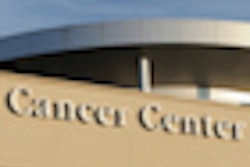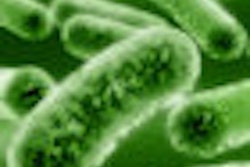Marijuana has long been used to help cancer patients better tolerate the side effects of chemotherapy. Now new research at the New York University College of Dentistry (NYUCD) is looking into the positive effects of psilocybin, the hallucinogen found in certain kinds of mushrooms.
Improvements in the diagnosis and treatment of cancers in recent years have led to a marked increase in patients' physical survival rates, according to the university. While doctors can treat the physical disease, what is not well-understood is how best to address the psychological needs of patients with cancer.
In addition to the physical pain associated with cancer, many patients also experience psychologically harmful symptoms of anxiety, depression, anger, and denial. Social isolation, in addition to hopelessness, helplessness, and loss of independence, also has been associated with significant psychological suffering in patients coping with advanced-stage cancer.
A recently published book chapter, entitled "Use of the Classic Hallucinogen Psilocybin for Treatment of Existential Distress Associated with Cancer," reviews the potential of a novel psychoactive drug, psilocybin, in alleviating the psychological and spiritual distress that often accompanies a life-threatening cancer diagnosis.
The chapter, published in Psychological Aspects of Cancer: A Guide to Emotional and Psychological Consequences of Cancer, Their Causes, and Their Management, was co-written by Anthony Bossis, PhD, a clinical assistant professor of psychiatry and oral and maxillofacial pathology, radiology, and medicine at NYUCD and Langone Medical Center.
The hallucinogen treatment model with psilocybin has been shown to induce a mystical or spiritual experience, and is a unique therapeutic approach to reduce the anxiety of terminal cancer patients.
"Mystical or peak consciousness states in cancer patients have been associated with a number of benefits, including improved psychological, spiritual, and existential well-being," Dr. Bossis stated in a press release.
The chapter includes a clinical case vignette of a patient in the ongoing Psilocybin Cancer Anxiety Study at the Bluestone Center for Clinical Research. Participants undergo two drug administration sessions in which psilocybin is administered on one occasion and a placebo on the other.
The clinical vignette describes a patient who, during the course of three years, experienced extreme fatigue, pain, overall body aches, discomfort, and psychological distress due to cancer and intensive biweekly chemotherapy. The patient became increasingly anxious and depressed, and was enrolled in two study sessions; in one he received psilocybin and the other placebo.
Despite continuing the arduous chemotherapy schedule, suffering from illness, and undergoing additional surgical procedures, the patient continued to report a marked improvement in attitude, coping, and mood 18 weeks after his session and stated, "my quality of life is dramatically improved."



















